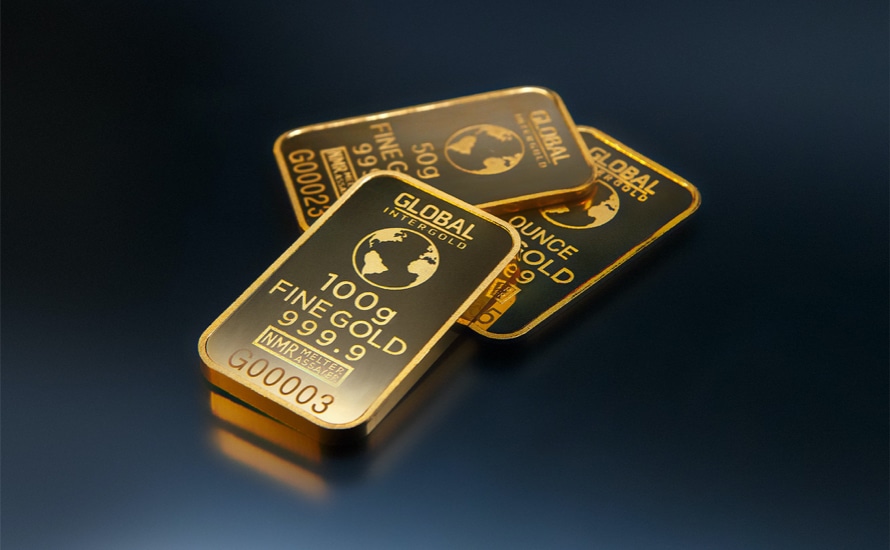Gold remains one of the most recognisable precious metals and a highly sought-after commodity. In many cultures, owning gold is still considered a status symbol of affluence and good fortune.
Historically, currencies from the US, and many other countries, could be converted into a certain weight of gold. Gold was the money, and the circulating paper currency was a receipt. Governments and their central banks couldn’t print and circulate more paper currency without mining more gold and increasing their reserves.
Being both a naturally scarce and useful metal, gold is a valuable asset. A monetary system based on a gold standard enforces monetary discipline, creates balance in international trade, and constrains government spending. Although this facilitates economic prosperity, it can pose a problem for governments. In the wake of World War I, the UK and many other countries had accumulated a staggering amount of debt. Since reducing spending or defaulting on the debt were politically unappealing options, the UK came off the gold standard in 1931, and the US followed suit in 1933. This allowed the UK and America to devalue their national currencies, repay government debts using less valuable currency, and kickstart economic activity by incentivizing people to borrow and spend. Sadly, there is no free lunch, and the monetary reset came at the expense of savers.
Today, while gold has lost some of its lustre, it is still popular among investors. Viewed as a ‘safe haven’ asset, investors flock to gold for its intrinsic value in times of economic uncertainty, like the one we are currently in. Gold is mostly priced in US dollars, and when the value of the currency weakens, the value of gold generally appreciates. In fact, the last several months have seen all-time highs for the price of gold as investors remain bullish amidst the uncertainty fuelled by the ongoing pandemic.
Some investors like Peter Schiff recommend buying and holding physical gold. This approach offers a hedge against inflation. Other investors like Warren Buffett have opted for investing in gold mining companies. This approach seeks to benefit from the large free cash flows that successful gold mining companies are likely to generate during a gold bull market. However, these are not the only ways to benefit from a rising gold price — and this is where gold ETFs come in.
Gold ETFs
A gold ETF is a type of commodity-backed exchange traded fund, which allows you to gain exposure to gold without directly owning it. Instead, what you own are shares in a fund, which are backed by gold. The fund might own physical gold, gold mining shares, or gold futures. The main reason to invest in top gold ETFs is practicality. Finding a reputable gold dealer can be a hassle, authenticating physical gold can be a lengthy process if you buy and sell a lot of it, and identifying the most promising gold mining companies can be a challenge. In addition, you need a place to safely store physical gold, which involves storage fees and security concerns. Gold ETFs can be a more practical and less expensive way of investing in the precious metal.
Gold ETFs also play a role in hedging your portfolio against extreme price movements. The World Bank notes that the current health crisis is set to plunge the global economy into the ‘worst recession since World War II’, and the resulting impact on global value chains will cause prices to fluctuate and businesses to struggle. Many countries are also enforcing lockdowns, while social unrest and civic tensions are causing further economic turbulence in nations across the globe. Overall, this has maintained the bullish sentiment toward gold as a relatively safe investment amidst volatile markets.
Investment risks
Investing in gold ETFs poses its own set of risks, the biggest being counterparty risk. There is a chance that another party who agrees to facilitate a trade — the financial institution who obtains the gold or a custodian who stores it — may fail to live up to their promise, or default. Moreover, just because the ETF uses trusted brand name financial institutions does not give you a complete guarantee. For example, HSBC, the custodian of the world’s largest gold ETF (GLD) has been involved in major money laundering scandals and other shady allegations.
Many investors also see not owning the underlying asset as a disadvantage. During a financial crisis, it may not be possible to convert shares in a gold ETF into gold — only cash. As a result, some investors would prefer to own physical gold. Gold is good money in the sense that it is durable, portable, divisible, uniform, acceptable, and limited in supply. An insurance policy in uncertain times. However, it’s up to the investor whether owning physical gold is worthwhile given the costs associated with trading and storing it.
The bottom line
The US Federal Reserve and other central banks appear committed to pursuing higher inflation over the next few years. This means low interest rates, easy credit, and a bullish environment for gold and other precious metals.
In this context, gold investors should consider the trade-offs provided by the different investment options. Physical gold reduces counterparty risk, provided it can be safely stored. Shares in a gold mining company may offer better returns than physical, provided you bet on the right horse. While ETFs offer exposure to rising gold prices combined with accessibility, practicality, lower transaction costs, and in many areas, fewer risks to investors.
Image: Pexels
